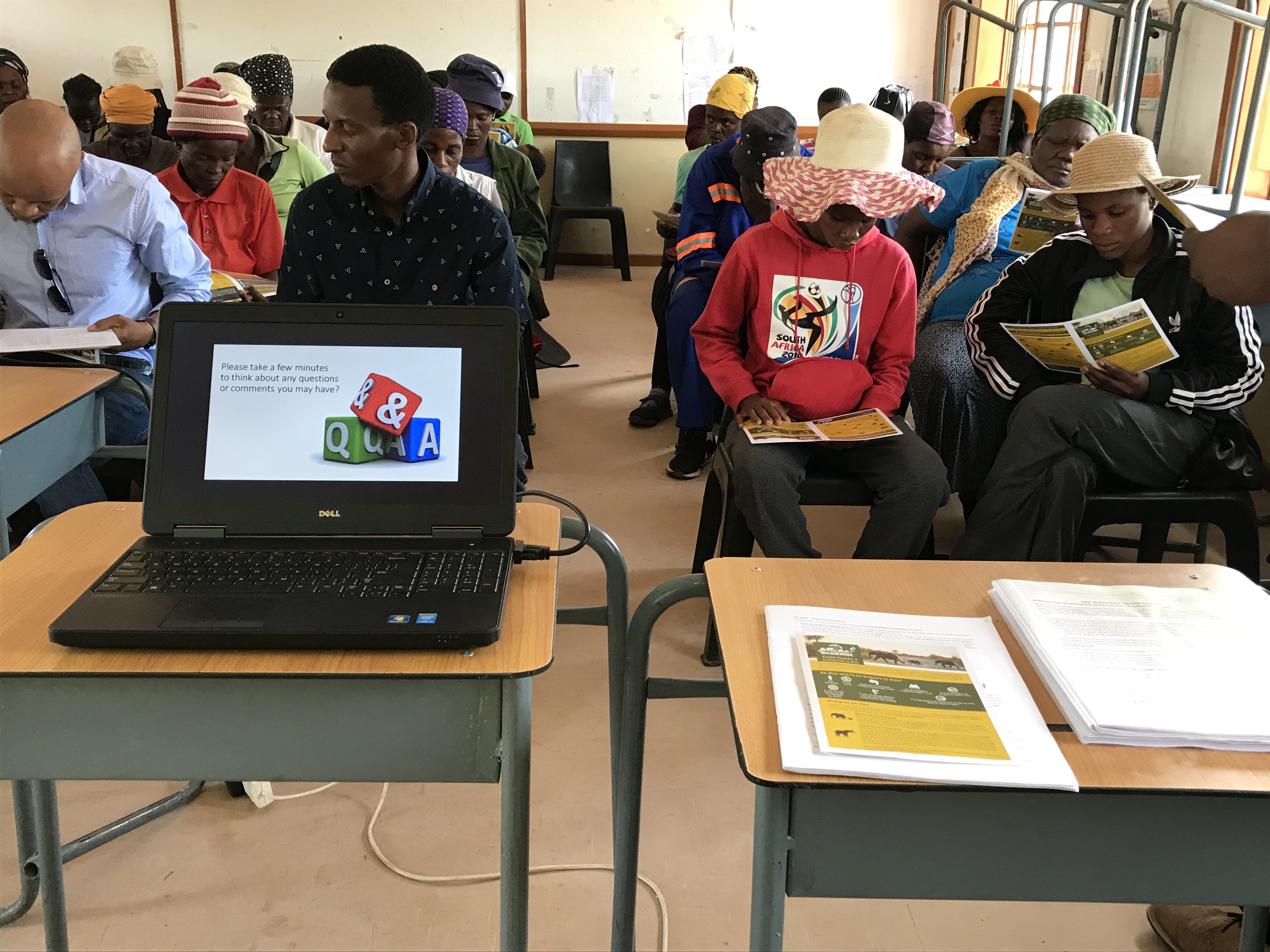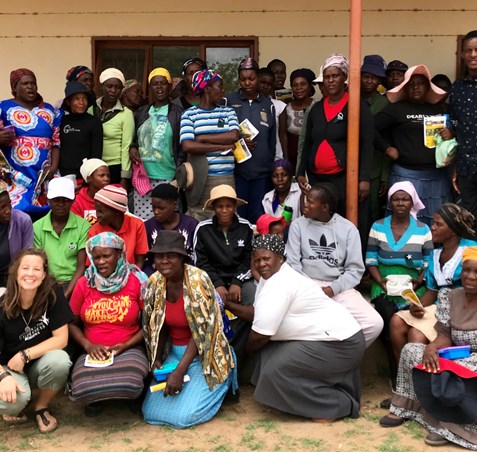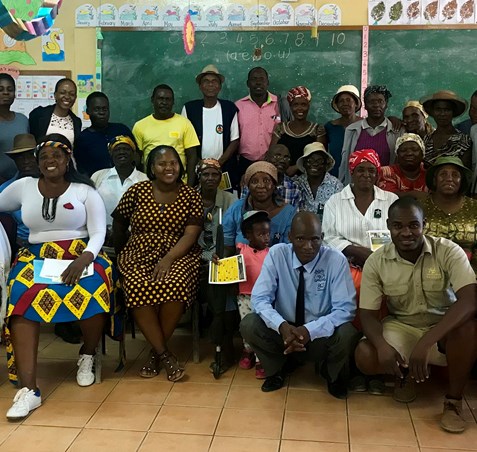Tuli Conservation Trust recently supported Earth Awareness Consulting in their successful Elephant Safety and Conflict Mitigation Workshops in Bobirwa Region.
In recent times, the Bobirwa region has experienced a drastic increase in elephant encounters. This along with the current drought conditions, has resulted in intensified competition over natural resources. The community has experienced severe conflict with elephants, not only through the loss of agricultural livelihoods, but more tragically through the loss of human life caused by elephants.
These workshops focused on educating participants on elephant behaviour and human safety aspects as well as crop-mitigation methods to nurture elephant – human coexistence. The half-day workshops were held in Gobojango, Semolale, Mabolwe, Mathathane, Motlhabaneng and Lentswe Le Moriti.

A large component is the teaching of life skills, as most often conservation challenges directly link back to human and societal challenges and struggles. The workshop was designed on the principals of environmental education (EE), including elements from the flow-learning technique. The aim was to keep the participants engaged and stimulated to ask questions and share comments / experiences.
In every village the workshop was well received, and participants showed a keen interest in the learning topics. A total of 248 members of the community attended the workshops in the 6 villages, including chiefs, councillors and elders. It is safe to estimate that for every person attending, a family of about 6 - 10 persons will receive the learnt information.
The feedback from the participants was only positive, requesting that these kinds of workshops be repeated with a focus on specific topics e.g. a mitigation method that everyone is most interested in implementing. The Ecoexist educational brochures will be shared throughout the community by the VDC and/or the Kgotla.


Earth Awareness Consulting will be engaging with the respective communities to organise more workshops, as well as develop the learning materials. The workshops are the first step to implement mitigation methods with community members that are willing and show initiative and they provided an excellent platform for the facilitators to connect with various community representatives and members, to educate and be educated. An educational initiative in the Bobirwa villages has unlimited potential to reach vast numbers of community members and change the way wild animals are perceived. Its effectiveness in reducing conflict between humans and wildlife is unquantifiable at this point in time, but in the future, it may well result in less illegal poaching incidences and/or reports of conflict.